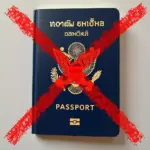“It’s more fun in the Philippines!” – you’ve probably heard this tagline before. But is the Philippines safe for travel? This is a question many travelers ask, and rightfully so. While the Philippines boasts stunning beaches, vibrant cities, and incredibly welcoming people, safety concerns, like in any country, do exist.
This comprehensive guide will explore the safety aspects of traveling in the Philippines, offering practical tips and insights to ensure a worry-free and enjoyable trip. We’ll delve into common concerns, address potential risks, and provide resources to help you travel smart and stay safe.
Understanding Safety in the Philippines
The Philippines, like any other travel destination, has its share of safety challenges. However, with a bit of awareness and planning, you can easily mitigate risks and enjoy a fantastic trip.
Common Concerns
Let me tell you about my friend, Sarah. Sarah had always dreamt of exploring the pristine beaches of Palawan. But before booking her trip, she, like many, was worried about safety. She’d heard stories about petty theft, scams, and even natural disasters.
 Woman Concerned About Travel Safety
Woman Concerned About Travel Safety
Sarah’s concerns are valid and shared by many travelers. Here’s a breakdown of some common worries:
- Petty Theft: Pickpocketing and bag snatching can occur, particularly in crowded areas like markets or public transportation.
- Scams: Tourists can be targets for scams, especially involving transportation or currency exchange.
- Natural Disasters: The Philippines is located in the Pacific Ring of Fire, making it prone to typhoons, earthquakes, and volcanic eruptions.
- Transportation Safety: Road safety standards can vary, and ferry accidents, though infrequent, have been reported.
- Areas of Unrest: Certain regions, particularly in the south, have experienced political unrest and insurgent activity.
Mitigating Risks & Staying Safe
The good news is, with a proactive approach, you can easily address these concerns:
 Tourists Practicing Safe Travel Tips in the Philippines
Tourists Practicing Safe Travel Tips in the Philippines
- Be Mindful of Your Belongings: Keep valuables secure, avoid displaying large amounts of cash, and be aware of your surroundings, especially in crowded areas.
- Choose Transportation Wisely: Opt for reputable taxi companies, ride-sharing services, or pre-booked transfers.
- Stay Informed About Weather Conditions: Monitor weather forecasts and heed local advisories, particularly during typhoon season.
- Research Your Destinations: Be aware of any travel advisories issued by your home country’s government and avoid areas with safety concerns.
- Learn Basic Filipino Phrases: Knowing a few essential phrases can be helpful in navigating local situations and interacting with locals.
- Register with Your Embassy: Inform your embassy about your travel plans, so they can reach you in case of an emergency.

